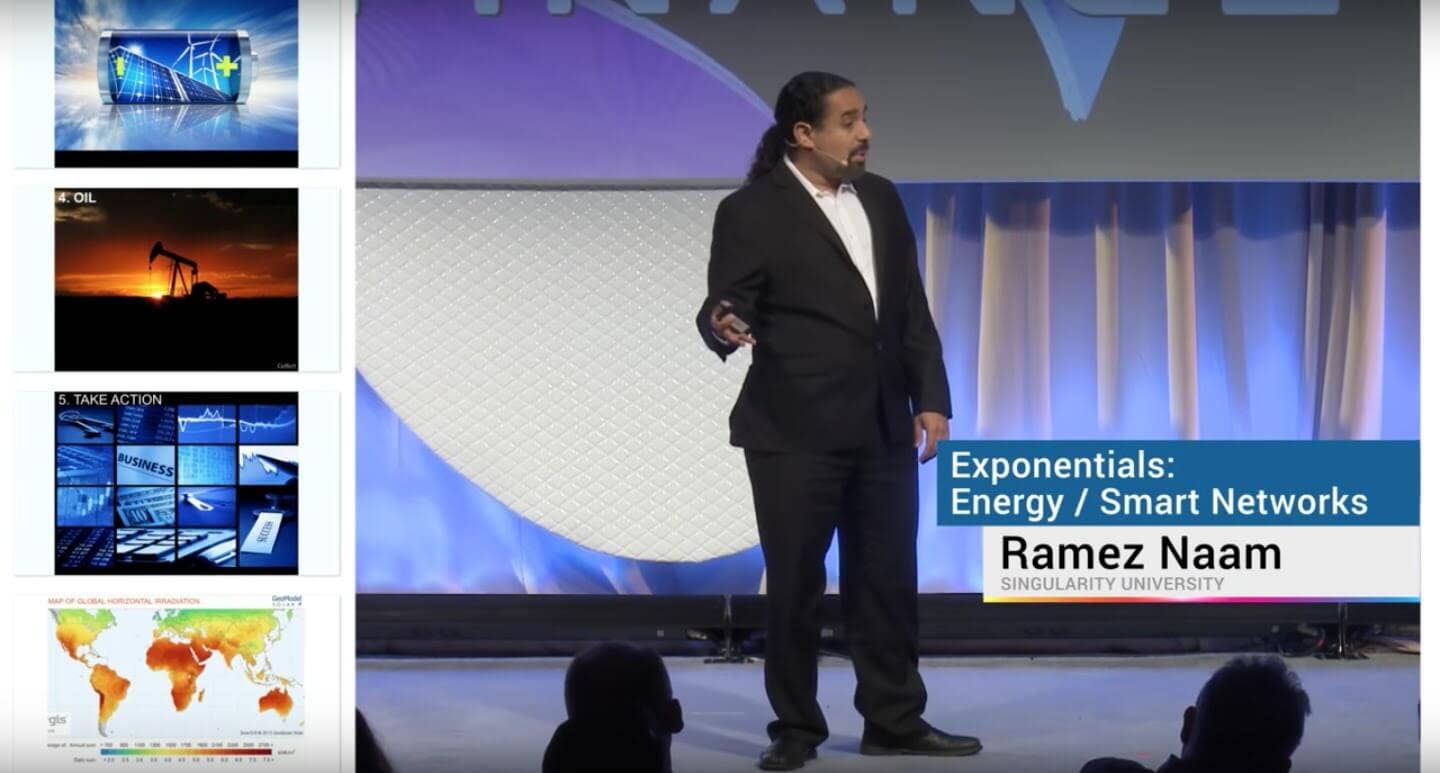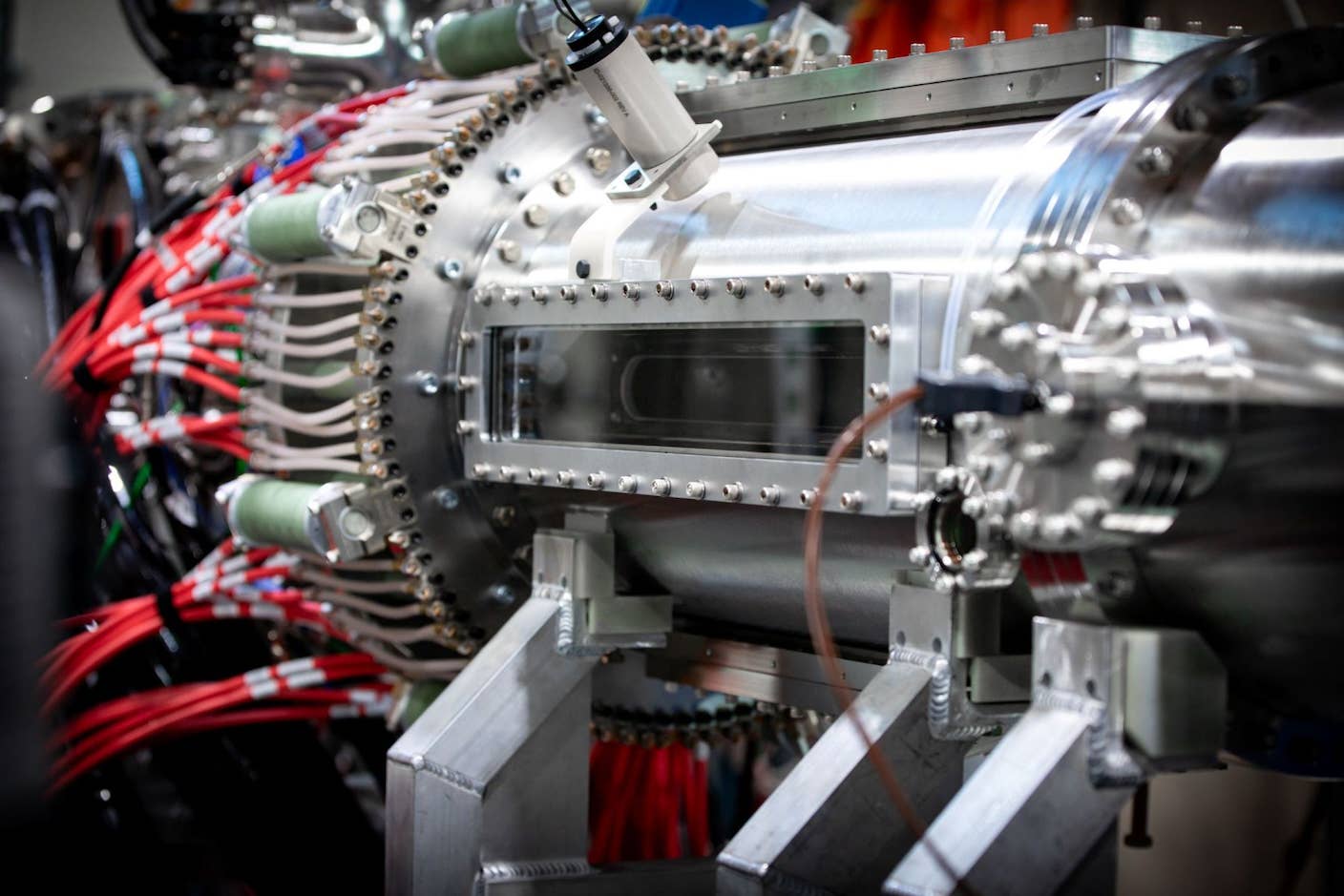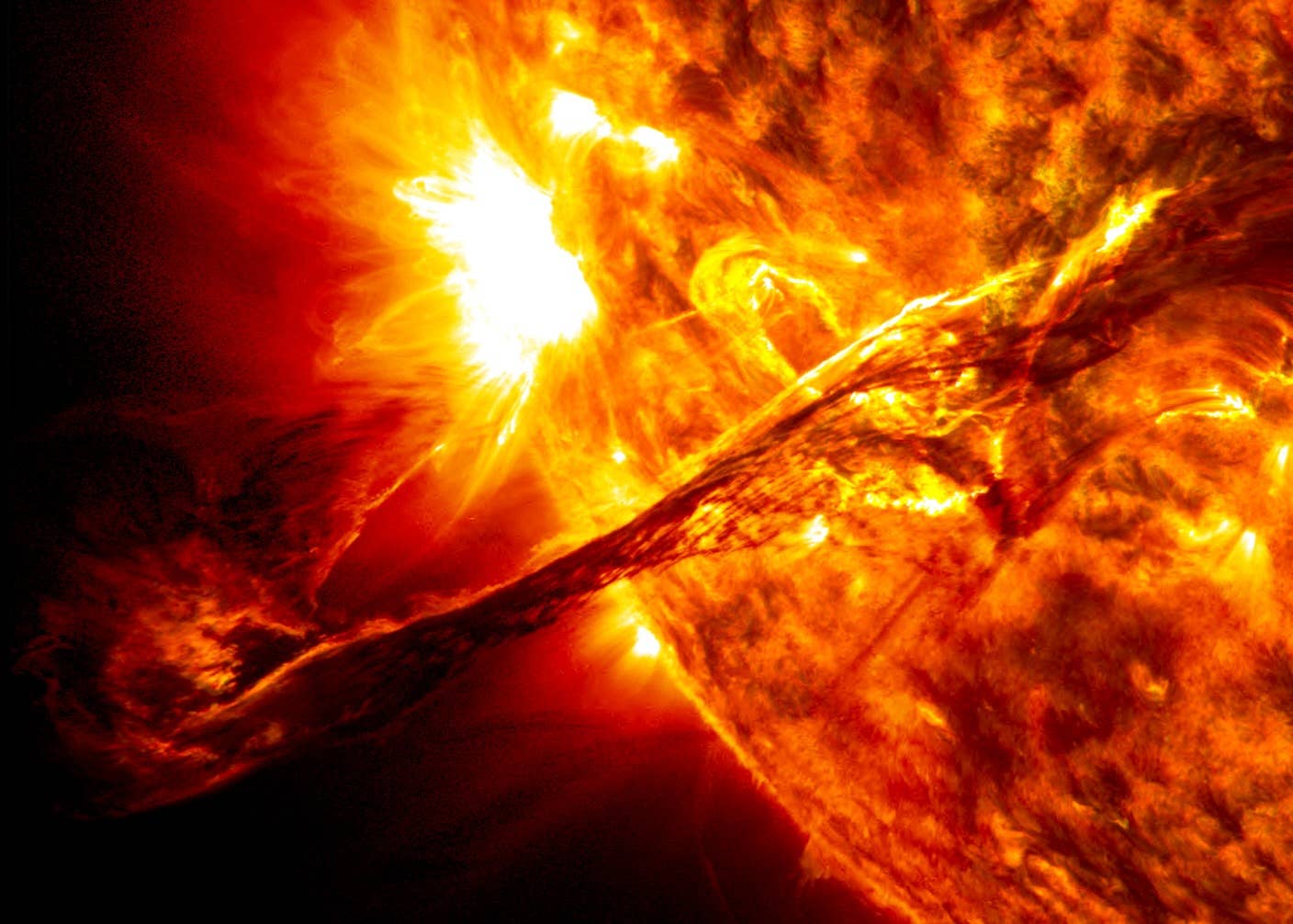Solar Energy Is Now as Cheap as Fossil Fuels

Share
Exponential Finance celebrates the incredible opportunity at the intersection of technology and finance.
“We are now hitting a crossover point where solar, without subsidies, is starting to beat out all other sources of energy.”
So said Ramez Naam, energy analyst and science fiction author, speaking this week at the Exponential Finance Summit hosted by Singularity University and CNBC. According to Naam, progress in technology has caused solar prices to drop two hundred times since the 1970s and five times in the last five years alone.
He pointed to a few recent examples of how low solar costs have become.
Outside of the city of Los Angeles, a new solar plant will be built at 3.6 cents per kilowatt-hour, and in Dubai, the lowest bid for a new, unsubsidized solar plant came in at less than 3 cents per kilowatt-hour.
“That is a price that five years ago people would have told you is simply impossible to ever reach,” said Naam.
Two years ago, the lowest cost deal was in Nevada at 5.7 cents per kilowatt-hour. Given that wholesale cost of fossil fuels is around 7 cents per kilowatt-hour, the cost of solar is now at a point where it’s primed for wide-scale adoption.
Be Part of the Future
Sign up to receive top stories about groundbreaking technologies and visionary thinkers from SingularityHub.


Because of varying climates, solar energy is not evenly accessible across the world. Yet it’s abundant in certain areas, including sub-Saharan Africa and South Asia where over a billion people don’t have access to reliable energy. With current technology, Naam said it would take less than half a percent of the Earth's land area to meet all energy needs.
“In those sunny places, it’s the cheapest energy money can buy, and it will spread to more of the country as the tech keeps getting better.”
Currently in the US, only 1% of total electricity comes from solar, and Naam sees that as a huge opportunity for exponential growth and for solar companies to dominate the market.
“Think about the cost of energy—it fluctuates. But the cost of technology, like the cellphone in your pocket? Those costs only go down. So now we have a technology that produces energy. It just gets cheaper and cheaper and will disrupt everything in its path.”
For more insights from Naam, check out his brief interview with CNBC’s Bob Pisani.
Image Credit: Shutterstock
David started writing for Singularity Hub in 2011 and served as editor-in-chief of the site from 2014 to 2017 and SU vice president of faculty, content, and curriculum from 2017 to 2019. His interests cover digital education, publishing, and media, but he'll always be a chemist at heart.
Related Articles

Startup Zap Energy Just Set a Fusion Power Record With Its Latest Reactor

Scientists Say New Air Filter Transforms Any Building Into a Carbon-Capture Machine

Investors Have Poured Nearly $10 Billion Into Fusion Power. Will Their Bet Pay Off?
What we’re reading